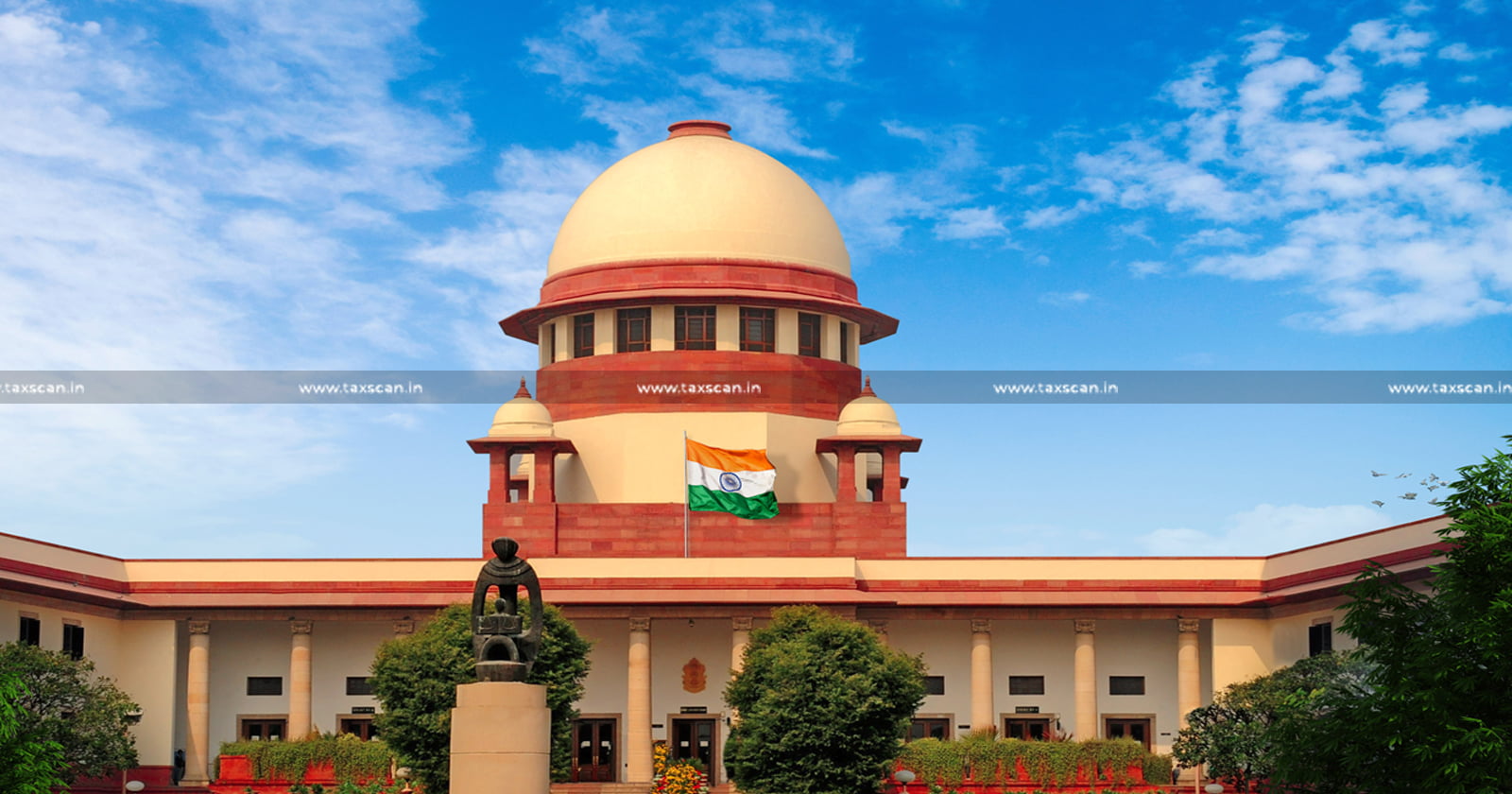Supreme Court Validates Retrospective Repeal of S.144B(9) of Income Tax Act, upholds Allahabad HC's Decision to Refer Case to Assessing Authority for Proper Hearing [Read Order]

Supreme Court Validates Retrospective Repeal – Income Tax Act – upholds Allahabad HC – Decision to Refer Case to Assessing Authority for Proper Hearing – TAXSCAN
Supreme Court Validates Retrospective Repeal – Income Tax Act – upholds Allahabad HC – Decision to Refer Case to Assessing Authority for Proper Hearing – TAXSCAN
In a significant judgment concerning the Constitutionality of retrospective repeal of Section 144-B(9) of the Income Tax Act, the Supreme Court bench of Justice B.V. Nagarathna and Justice Ujjal Bhuyan validated the omission by the Finance Act, 2022. The bench also upheld the decision of the Allahabad High Court remitting the case back to the Assessing Authority for proper hearing.
The petitioner company, Sapna Flour Mills Ltd is engaged in a business of running a Flour mill, manufacturing Flour from Wheat. It filed its return of income for the assessment year 2013-014 declaring a total income of Rs. 32,32,210/- on 12.8.2013.
This return of income was revised on 13.8.2013. The notice under Section 148 of the Income Tax Act was issued to the petitioner on 31.3.2021. The petitioner filed a return of income in response to the notice under Section 148 of the Income Tax Act on 28.4.2021.
Another notice dated 30.6.2021 under Section 143(2) read with Section 147 of the Income Tax Act, 1961 was issued acknowledging the response of the petitioner to the notice under Section 148 of the Act and the statement of reasons recorded for the purpose of reopening assessment were enclosed therein. The detailed objections were filed by the petitioner on 22.10.2021 challenging the jurisdiction of the assessing officer, in response to the notice under Section 148 of the Income Tax Act.
The petitioner had contended before the High Court that the amendment omitting Section 144B(9) brought by the Finance Act, 2022 is bad in law as it has been given retrospective operation as it seeks to take away vested rights of the taxpayer. It is argued that Section 144B(9) was a safeguard against illegal, arbitrary, perfunctory and unsustainable assessment orders issued by the revenue authorities.
The petitioner's counsel argued before the Court that Section 42 of the Finance Act, 2022, which removed sub-section (9) from Section 144B of the Income Tax Act, should be declared unconstitutional as it goes beyond the powers granted by the Constitution.
The Allahabad High Court had acknowledged that the removal of Section 144B(9) was aimed at simplifying the faceless assessment process and addressing legal and procedural challenges encountered during the implementation of Section 144B, which was introduced with the Taxation and Other Laws (Relaxation and Amendment of Certain Provisions) Act, 2020, starting from April 1, 2021. It's important to note that the amendments challenged by the Finance Act, 2022, are primarily related to procedural matters.
In the present case, the Allahabad High Court had compared the pre-amendment and the post-amendment of Section 144B. It demonstrated that the Finance Act, 2022, introduced several checks and measures in the amendment to enhance the process of faceless assessment. This addition to the Income Tax Act was intended to simplify compliance for taxpayers, enhance transparency and efficiency by minimising interactions with tax authorities, and ultimately reduce litigation.
As per the conclusions derived from the material records submitted, the High Court bench had observed that the impugned assessment order is, thus, found to be in violation of the principles of natural justice and against the procedure set in place for conducting reassessment proceedings.
Thus, had set aside the order and remitted the matter back to the competent authority/National Faceless Assessment Centre for passing a fresh assessment order after providing due opportunity of hearing to the petitioner by fixing a date for personal hearing through video conferencing.
The petitioner's counsel submitted that specific issues regarding the constitutional validity of Section 144-B(9) and the application of jurisdiction under Section 143(2) of the Income Tax Act, 1961, were raised in the writ petition. The petitioner has filed this special leave petition due to being dissatisfied with the challenged order.
While upholding the decision of the Allahabad High Court, the Supreme Court bench held that “We note that since the matter has been remitted to the Assessing Authority to be considered on merits, we dispose of this Special Leave Petition reserving liberty to the petitioner to revive this petition in the event the petitioner is unsuccessful before the statutory authorities so as to raise the contentions raised in this special leave petition on the other aspects of the matter.”
To Read the full text of the Order CLICK HERE
Support our journalism by subscribing to Taxscan premium. Follow us on Telegram for quick updates


